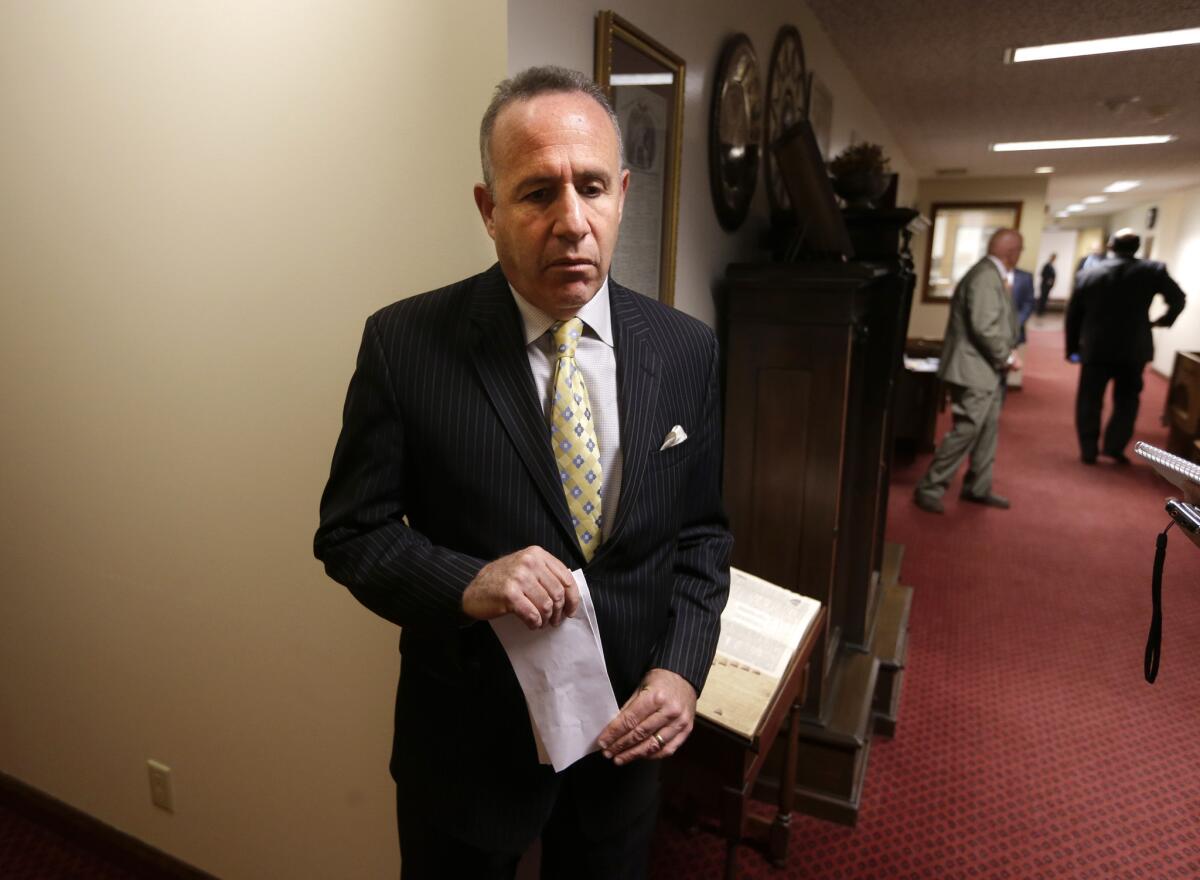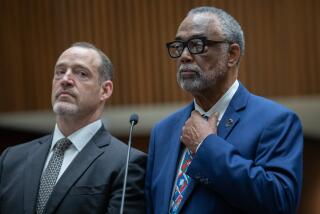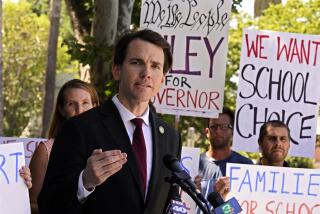State Senate panel reviews ethics, campaign laws

SACRAMENTO — With the state Legislature rocked by multiple scandals, the leader of the Senate has assembled a group of lawmakers to examine the state’s decades-old ethics and campaign laws.
The Senate Ethics Working Group was formed by Senate President Darrell Steinberg (D-Sacramento).
“I asked a few colleagues to get together informally and examine legislative and campaign finance rules in other states, with an intent to discuss and prepare a package of reforms that strengthen California’s laws,” Steinberg said Tuesday.
The Senate’s standards of conduct have not been changed in 20 years, and the state Political Reform Act dates to 1979.
“I’m glad they are doing this,” said the act’s coauthor, Bob Stern, a former general counsel for the Fair Political Practices Commission. “Clearly it’s in response to the senators who got in trouble. But it’s been a long time since they have reviewed it.”
Those embroiled in ethical scandals include Sen. Ronald S. Calderon (D-Montebello), Sen. Roderick D. Wright (D-Inglewood) and Sen. Tom Berryhill (R-Merced).
An administrative law judge has recommended fines against Berryhill for allegedly funneling $40,000 in contributions through GOP county committees to the 2008 Assembly campaign of his brother Bill.
Last month, a Los Angeles County jury convicted Wright of eight felonies, including perjury and voter fraud, after prosecutors said he lied about living in his Senate district when he was elected and voted there.
This week, about 40 lawmakers and other state officials, including Steinberg, received letters from the FPPC noting that they had received improper campaign contributions from lobbyist Kevin Sloat. The officials are not facing fines because it did not appear they knew Sloat was paying for wine and cigars at their fundraisers, FPPC officials said.
California law bars lobbyists from making or arranging donations for candidates for state office.
Meanwhile, a leaked FBI affidavit indicates that Calderon is under federal investigation for allegedly accepting $88,000 in bribes to affect bills pending in the Legislature.
Calderon has not been charged with a crime and denies any wrongdoing.
Sen. Richard Roth (D-Riverside) is a member of the six-senator working group. He wants to look at whether campaign contributions should be reported more often so the public can better see possible connections between fundraising and legislative activity.
Roth also says the panel should consider whether more restrictions should be placed on how campaign funds may be used. Calderon reported using some campaign accounts for expensive meals, trips to overseas resorts, golf outings and electronic goods.
Roth says lawmakers should also consider banning certain kinds of gifts, such as sports and entertainment tickets, that are not necessary for them to do their jobs. In addition, he says, the panel, headed by Sen. Ricardo Lara (D-Bell Gardens), may scrutinize residency rules for those running for the Senate.
At the time of Wright’s conviction, Steinberg said lawmakers should review and clarify the residency rules, which he called “ambiguous.”
Unlike normal Senate committees, the working group is made up entirely of Democrats, something noticed by the leader of the Senate’s minority Republicans, Bob Huff of Diamond Bar.
“If the goal is to achieve true bipartisan reforms, the proper venue should be the Senate Ethics Committee, where both parties are equally represented,” Huff said.
More to Read
Start your day right
Sign up for Essential California for news, features and recommendations from the L.A. Times and beyond in your inbox six days a week.
You may occasionally receive promotional content from the Los Angeles Times.







